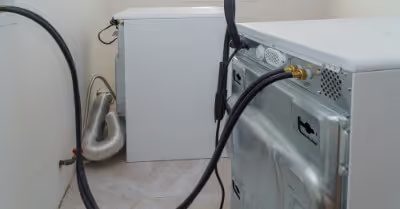Table of Contents
About Home Appraisals
As noted above, home appraisals are used to determine the value of a house under fair market conditions.
If you are buying a house through a mortgage, your lender will first request a copy of the property’s appraisal report, to confirm the seller’s prices are reasonable.
An appraisal is vital to both the buyer and the seller. It ensures the buyer will not overpay or get a bigger loan than the property’s worth. On the other hand, it will help the seller to sell their house at a fair market price.
If you are looking for mortgage refinancing, your mortgage lender may also require an appraisal to be conducted on your home. The appraisal will help the lender to determine your home’s equity amount.
Appraisal management companies are usually hired to conduct home appraisals. All assessments or appraisals must meet the Uniform Standards of Professional Appraisal Practice or USPAP, to ensure they are fair and unbiased.
Furthermore, the individual sent to undertake the appraisal shouldn’t be affiliated with either the buyer, the seller, the real estate agent, loan officer, lender or anyone with financial interests in the transaction.
Home Appraisal vs. Home Inspection
Some people tend to think that home appraisals and home inspections are the same thing. However, home appraisals and home inspections are not exactly the same thing.
A home appraisal is more of a formal evaluation, done by a certified and licensed home appraiser.
It’s used to determine the value of a home under fair market conditions. Home appraisals are usually ordered by lenders, as part of the mortgage approval process.
Home inspections, on the other hand, are undertaken by independent inspectors or home inspection companies. It’s important to note that home inspections tend to be more detailed than home appraisals.
During a home inspection, the inspector will check and note down everything that needs to be repaired, replaced, or fixed, whether movable or immovable. The buyer can then use that information to negotiate with the seller.
In simple terms, the appraiser determines the value of the house under fair market conditions while the inspector determines the condition of the house, the repairs it needs and their potential cost.
While the two processes may appear similar, the appraiser is there to protect the lender’s interests while the home inspector is there to protect the buyer’s interests.
What Do Appraisers Look For?
Appraisers work independently to determine the value of a home. Therefore, any interaction with the buyer and seller is kept to a minimum.
During the appraisal, the appraiser will undertake a physical property walk-through, as part of the process. They will then check and note down things like:
- Exterior and the interior condition of the home
- Functionality aspects like the interior layout and room design
- Total room count
- Improvements to bathrooms, kitchens, roof, windows, doors and the various home systems
- Condition and age of the property’s electrical, HVAC and plumbing systems
- Property location
- Exterior amenities like decks, porches and garage
- The quality of landscaping
Also, the appraiser may note down adverse problems or conditions with the property, which must be corrected or inspected further, before mortgage approval.
Such issues may include things like evidence of termites, installations or modifications that lack the necessary approvals, presence of mold or dampness, environmental hazards and roof damage, among others.
What Determines a Home’s Value?
The physical inspection of the property is only a part of the appraisal process. To determine the home’s value, the appraiser will also do a comparative analysis, where he will compare the house with other similar homes in the neighborhood.
They will check houses in the neighborhood that share characteristics and features with the subject property. Such characteristics may include things like size, architectural style and age.
So, what determines a home’s value is the basic condition of the home, the upgrades and improvements made to the property and comparable properties in the neighborhood.
The improvements or upgrades made on the property should be permanent fixtures such as new bathroom tiles or a modern security system. If you can move with the upgrade, then it will not be considered during the appraisal.
How Much Does a Home Appraisal Cost?
Home appraisals cost approximately $300 to $400 for a single-family home and up to $600 or more for multi-family units.
The actual cost for the appraisal will depend on various factors such as the size of the property, value of the property, unique locations, level of damage or repair, unusual features as well as lack of comparable homes.
For example, if a house is unusually large, then the appraiser may charge more for the work since they have to measure and assess a larger area.
Also, if the subject home is located far away from similar properties or it’s located in a unique location, then the appraisal will cost more time since comparative pricing will be difficult. As you may expect, the appraisal cost will be higher for such properties.
Furthermore, if the home has extensive damages, then these will require more time and effort for the appraiser, leading to higher costs.
Who Pays for Home Appraisals?
As much as the mortgage lender orders for the home appraisal, the buyer will pay for the costs incurred. The buyer can decide to pay upfront when the appraisal is being done or it can be included in closing costs.
How Long Do Home Appraisals Take?
An appraisal can take approximately 2 weeks from start to completion. However, the actual duration will depend on various factors such as the applicable state laws, the size of the property, and the condition of the property, among others.
So, what does a home appraisal entail? Here are the steps followed during a home appraisal process.
An Appraisal is Ordered
The buyer’s mortgage lender will order an appraisal, which will help them to determine the property’s value. While the lender may choose the appraiser, they have minimal or no contact during the appraisal process, to ensure the process is fair for everyone.
Property Inspection
Once an appraisal has been ordered, the appraiser will contact the seller to schedule a convenient time for the home appraisal to happen. When conducting the inspection, the appraiser will walk through the property and assess its condition.
The property walk-through can take anywhere from a few minutes to an hour or so, depending on the size, condition, and location of the house.
Report Findings
After conducting a property inspection, the appraiser will also review comparable properties in the neighborhood. They will then use this information to create a fair market value for the home.
The final report may include things like general market information, the location of the home, properties used for comparative analysis as well as any other data that may support the appraiser’s findings.
Both the seller and the lender will receive a copy of the appraisal report. The lender will then review the report and then determine whether to issue the mortgage or not.
Appraisal Finalization
After reviewing the appraisal report, the lender may request the appraiser to make some revisions before it can be finalized. Such reviews are just minor things like correcting spelling mistakes or such errors.
If the lender is satisfied with the appraisal report, then they will go ahead and finalize the mortgage terms with the buyer. The buyer will receive a closing disclosure, detailing the terms of the mortgage, the closing costs, as well as the down payment required.
Appraisal Tips for Home sellers
Home appraisals are an important part of the home buying process. They assure the mortgage lender that they are not loaning the buyer more money than the property’s worth. So, if you are the seller, you want to ensure that the appraisal comes back as high as possible.
The good news is, there are few measures you can take to improve the chances of a favorable home appraisal. Here are some of the things that you can do to prepare for a home appraisal:
Enhance Your Curb Appeal
As noted earlier, home appraisers also check the exterior of a home during the appraisal process. Therefore, you should spend some time improving your curb appeal, before the appraiser arrives.
For instance, you can start with simple things like mowing the lawn. If the grass in your yard is more than 3 inches long, then you should mow it yourself or hire someone to do the job.
Apart from mowing the lawn, you should ensure the pathways leading to your home are well-lit and clear. You can also consider adding decorative features to your doorway.
While these improvements may appear insignificant or minor, they will go a long way in making your home more appealing.
Declutter Your Home
If the house you are selling is filled with clutter, then it will make it harder for the appraiser to determine your home’s accurate condition.
For instance, the clutter may hide some improvements or even make the rooms feel smaller. Consequently, your house may be undervalued.
To declutter your house, make sure you arrange all your clothing, whether it’s in a chest, or closet. You should also consider donating unworn clothing to a local shelter or charity.
You also need to remove clutter from your kitchen countertops, to give your kitchen a clean look. Also, ensure the dishes are clean and put away when the appraisal is taking place.
Also, you need to rearrange your furniture and ensure proper use of space, to make your living rooms appear larger. And if you have too much furniture, then you should consider getting rid of some.
You should also replace old bulbs with brighter bulbs so that your living room appears bright and well lit. And finally, give your home a thorough cleaning, while making sure everything is neat and organized in its place.
Ensure Everything Works
While the appraiser may not test every outlet or switch, you should ensure that all the home’s major systems are working properly.
So, make sure you run the entire HVAC system and see how it's functioning. You should also check the electrical system and the plumbing system as well as all kitchen appliances.
If any of the systems is not working, then you should schedule a repair prior to the day of the appraisal. By the time the appraiser arrives, they will find everything working perfectly.
Document all the Upgrades and Improvements
Immovable upgrades and improvements will increase your home’s overall value. And you can make things much easier for the appraise, by documenting all the improvements and upgrades you’ve undertaken over the years.
Whether you’ve replaced your hardware, remodeled your ceiling, added a kitchen backsplash, replaced the windows or added a privacy fence to your backyard, you should document all these improvements.
While documenting these upgrades, you need to attach the sales receipts for the supplies and the contractor invoices you’ve paid.
You also need to attach the zoning permits you’ve acquired for the changes where applicable.
Leave the Appraiser Do their Job
It can sometimes be tempting to point out the upgrades you’ve made to the appraiser or guide them through your house. However, you should refrain from doing this at all costs.
Appraisers do this work every day. Therefore, they know what to look for during the appraisal.
So, trying to guide them may annoy them. And the outcome may not be favorable for you.
Research Comparable Properties
It’s also advisable to look for properties in your neighborhood that share similar features with your home like square footage, condition, upgrades, and layout.
Researching the comparables will give you a better idea of what to expect from your property’s appraisal.
Your local county office has information on all the properties sold in your neighborhood over the last 6 months.
If the appraisal comes significantly lower than you had expected, then you can use this information to contest the valuation.
Home appraisals are an integral component when it comes to real estate transactions for sellers, buyers and mortgage lenders. So, whether you are planning to purchase a home, you are selling one or you intend to refinance your mortgage, it will be highly advisable to familiarize yourself with the home appraisal process.
Recent Articles
















